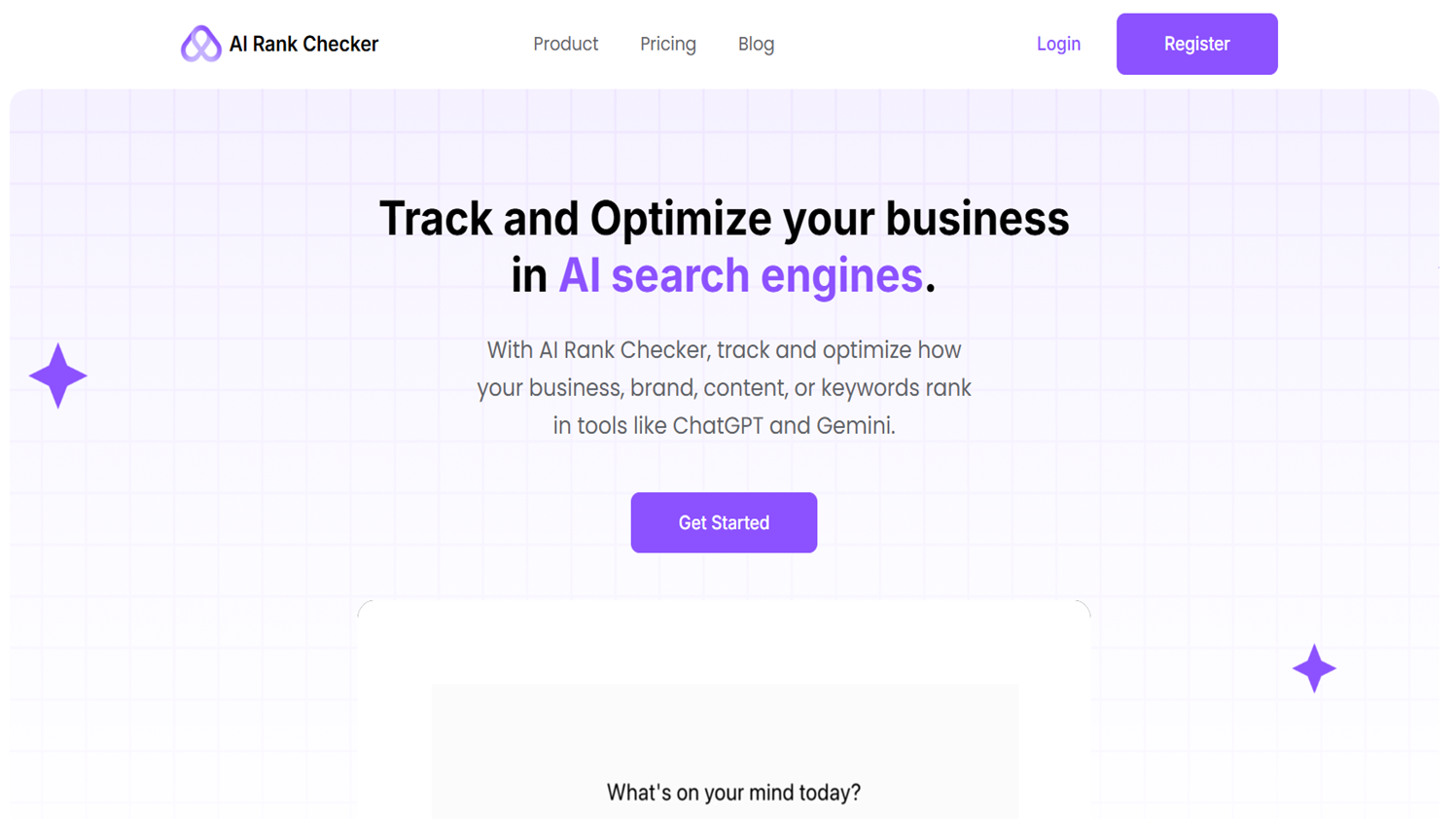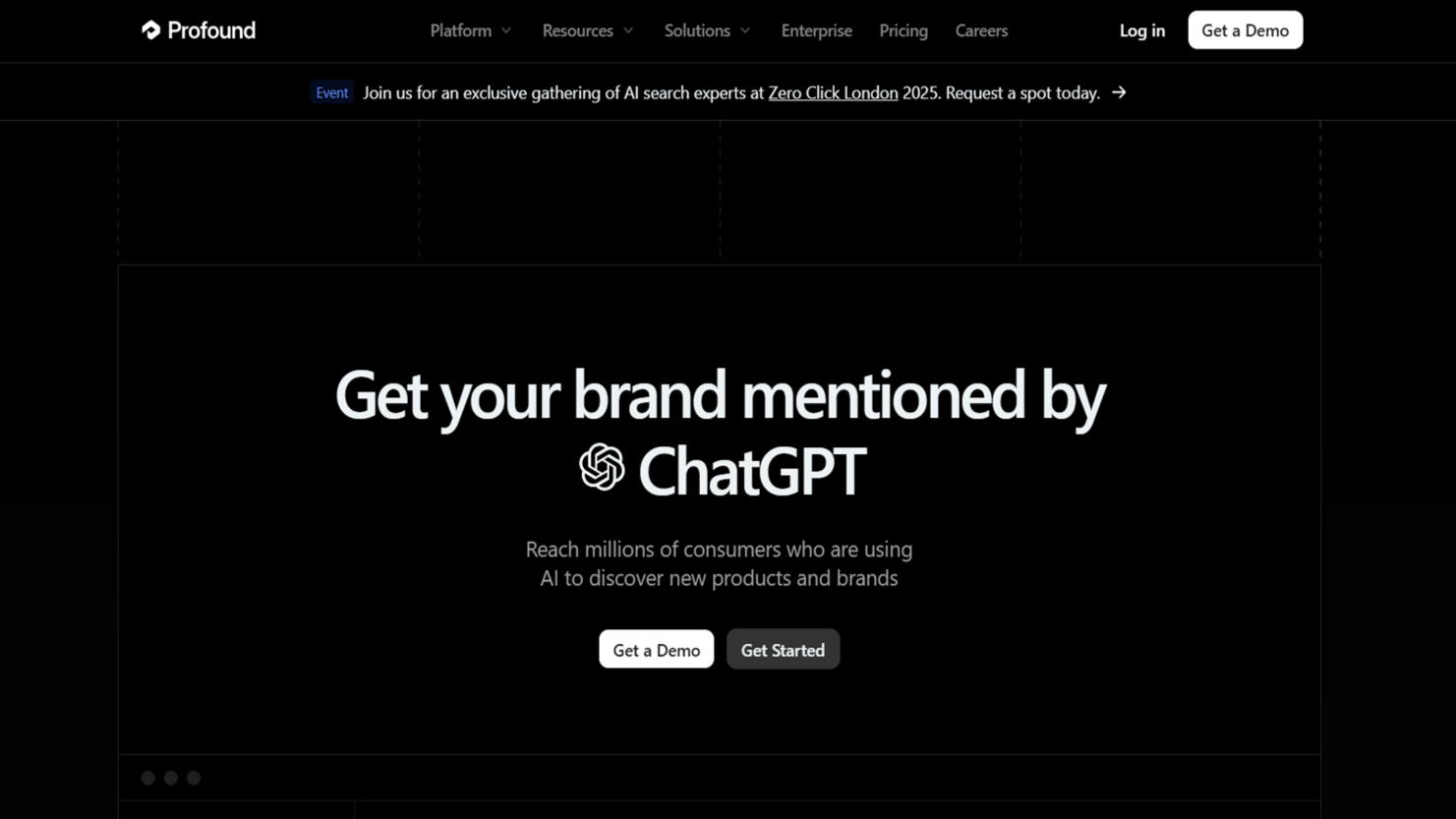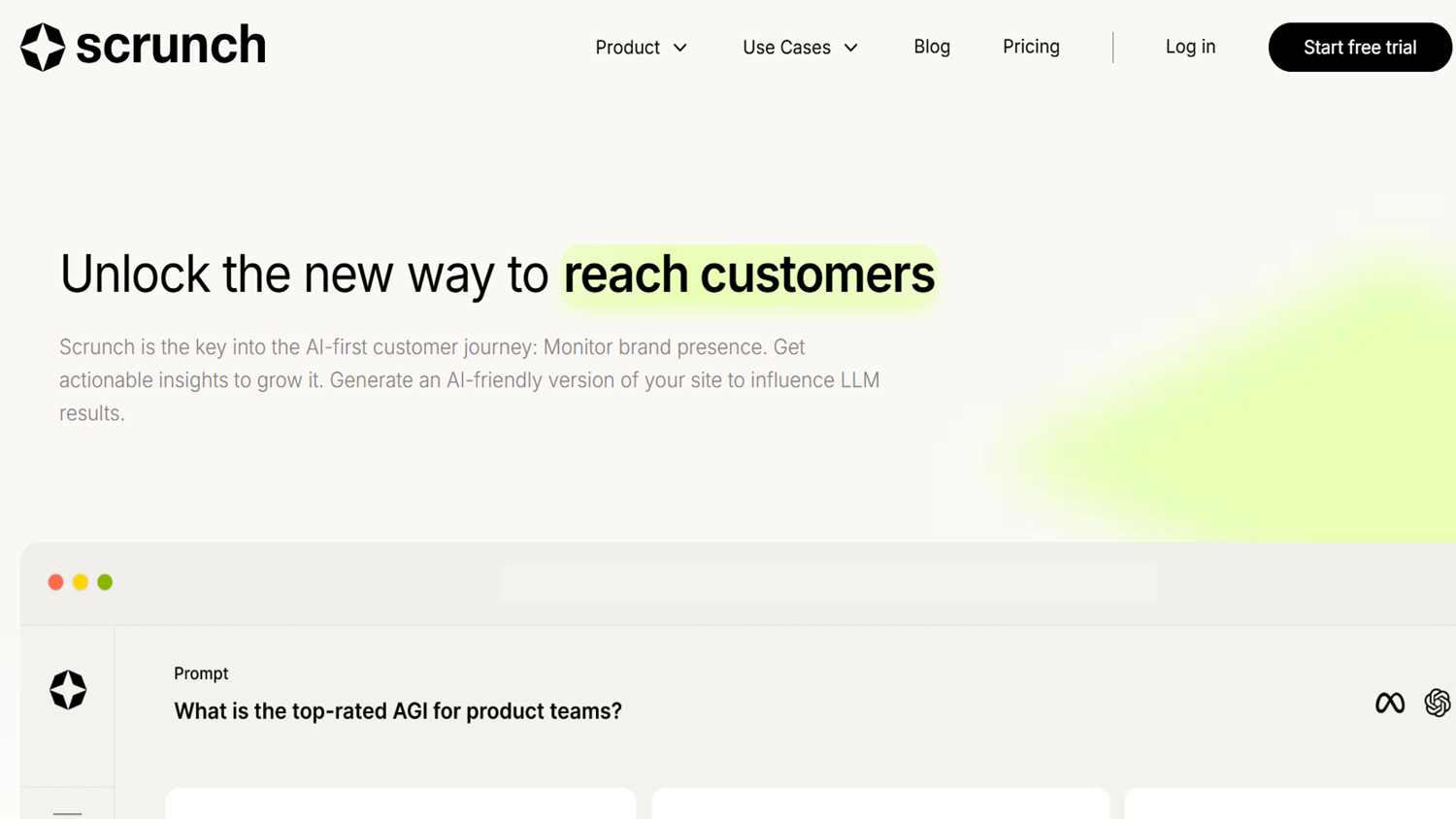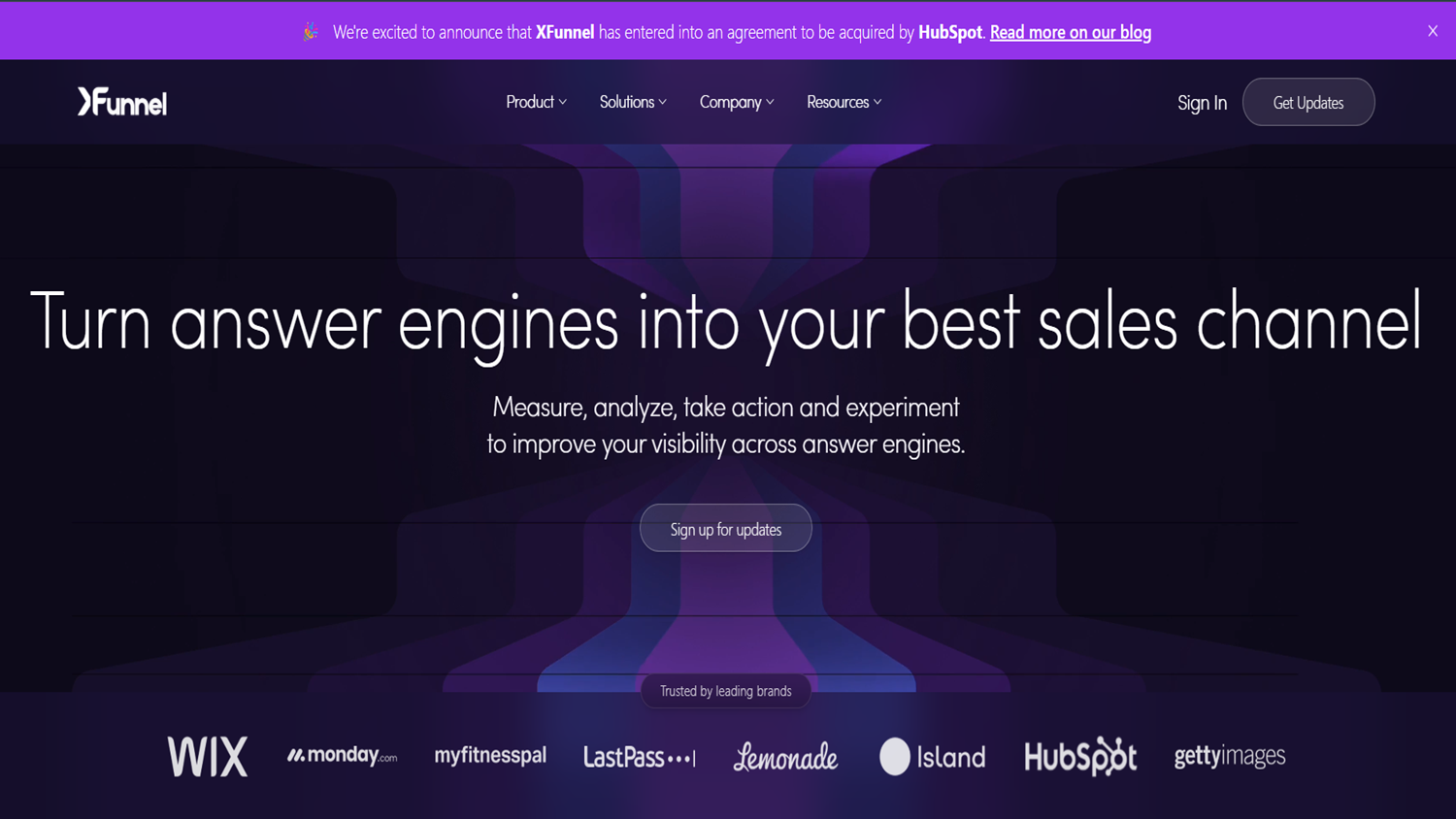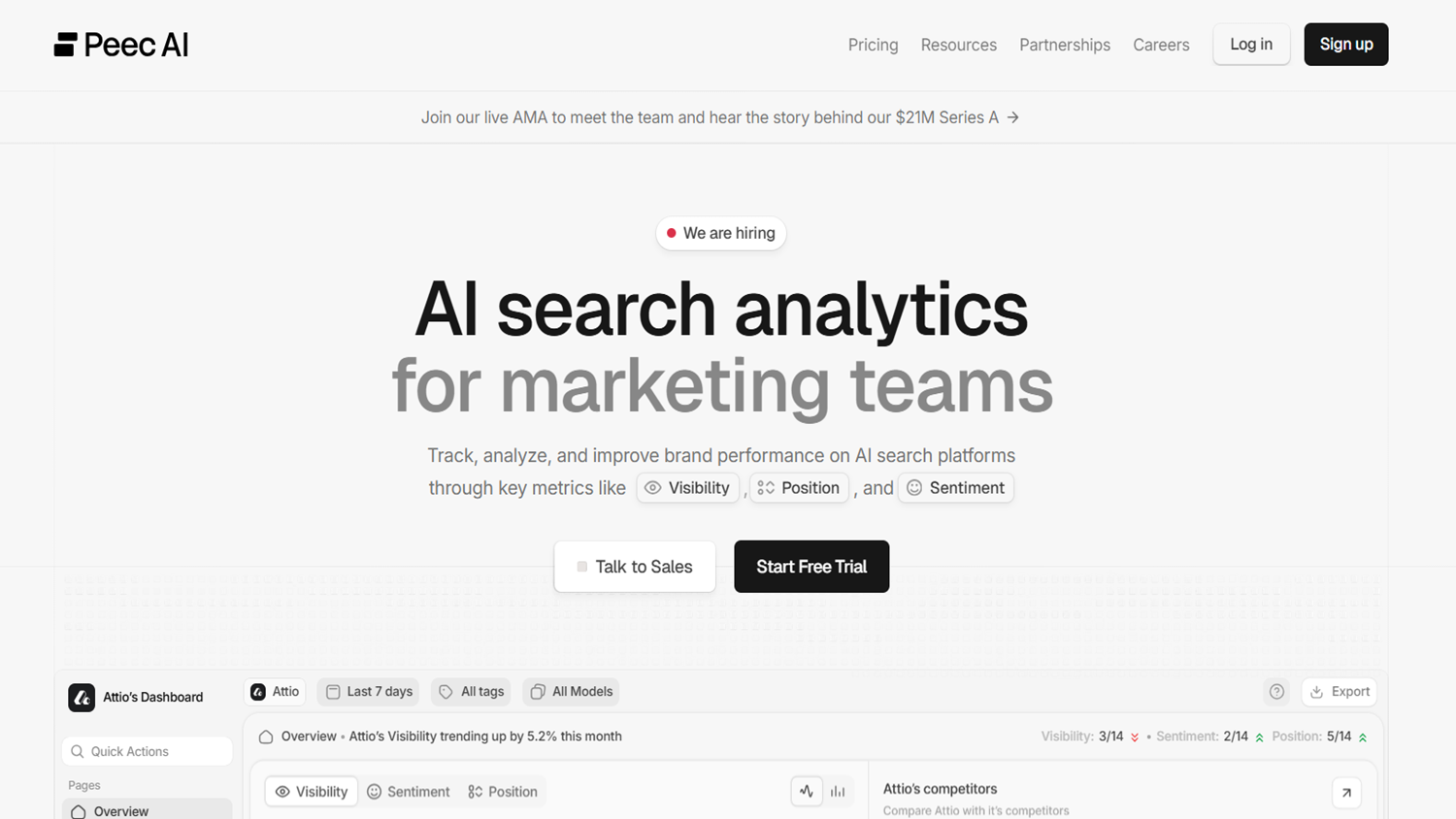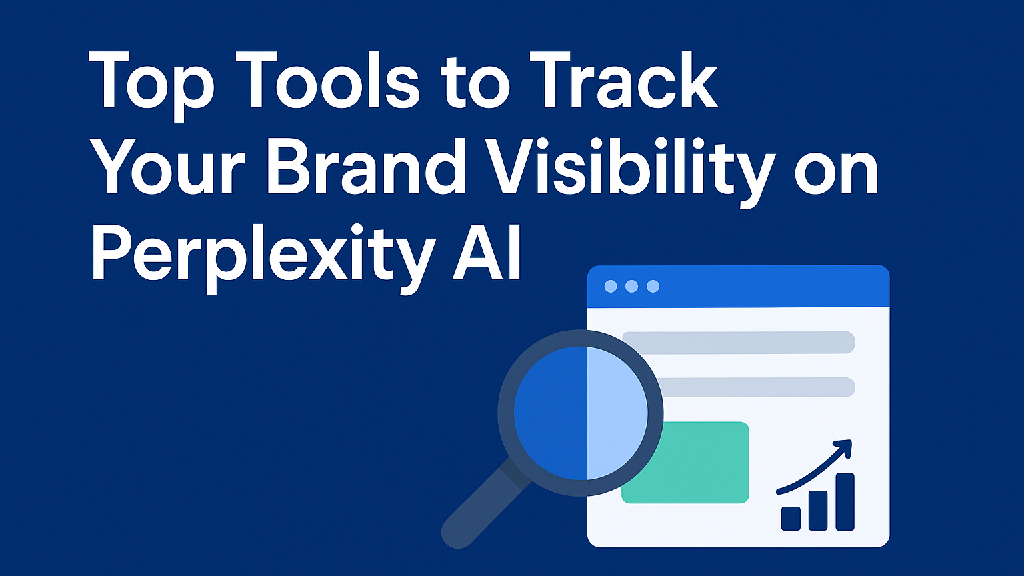Top Tools to Track Your Brand Visibility on Perplexity AI
The Ultimate Guide to Monitoring Your Brand Visibility on Perplexity AI
Perplexity has quickly grown into one of the most influential AI search engines in the world — not just a chatbot, but a powerful retrieval-focused answer engine capable of summarizing, citing, and recommending businesses in milliseconds. As more users rely on Perplexity for product research, service recommendations, and business discovery, ranking on Perplexity has become just as important as traditional SEO.
But here is the challenge:
Perplexity doesn’t display a classic list of “search results.”
Instead, it provides synthesized answers with citations, summaries, and authoritative recommendations. This means businesses need AI rank tracking tools capable of measuring how often Perplexity mentions them, recommends them, cites them, or pulls their content into answers.
Below are the Top 5 Perplexity Rank Tracking Tools you should know in 2025.
Each tool plays a role in helping brands optimize for Perplexity’s AI-driven ecosystem, but one clearly stands out for precision, transparency, and AI-visibility accuracy.
1. AI Rank Checker, The #1 Perplexity Rank Tracking Tool
AI Rank Checker leads the market as the most comprehensive AI visibility and Perplexity ranking platform. Built specifically for AI search engines like Perplexity, ChatGPT, Claude, Gemini, Grok, and Copilot, it measures how often a business appears in answers, citations, summaries, recommendations, and branded vs. non-branded queries.
Unlike traditional SEO software, AI Rank Checker is designed with AI SEO in mind, meaning it tracks what actually matters:
a. Answer share
b. Recommendation frequency
c. Visibility across branded & non-branded questions
d. Citation density
e. Entity recognition accuracy
f. "Top pick” highlight frequency
g. AI-generated descriptions and sentiment
For Perplexity specifically, AI Rank Checker performs multi-query scanning to understand how consistently the AI engine recommends your business across different search patterns. This makes it an essential tool for businesses that want to understand whether Perplexity views them as authoritative, relevant, or trustworthy.
Why AI Rank Checker is #1:
a. Built specifically for AI search engines (not repurposed SEO tools)
b. Tracks AI answers, citations, and recommendation patterns
c. Pay-as-you-go wallet model with no monthly subscriptions
d. Deep Perplexity-specific visibility scoring
e. Supports multilingual and multi-region tracking
f. Ideal for agencies, SMEs, and enterprise brands
If your goal is to understand how Perplexity perceives your business today, and how to improve that perception tomorrow, AI Rank Checker is the most accurate tool available.
2. Profound, Strong AI Insights With Knowledge Graph Focus
Profound is an AI-powered visibility and analytics platform that emphasizes entity understanding, knowledge graph coverage, and content-based ranking signals. While not built exclusively for Perplexity, its entity-focused approach makes it valuable for brands looking to understand how AI systems categorize, interpret, and associate their business.
Profound’s strength lies in analyzing:
a. How AI models classify your brand
b. Topic clusters surrounding your business
c. Co-mention frequency with competitors
d. Knowledge graph gaps and opportunities
For Perplexity tracking, Profound detects when your brand appears in citations or curated knowledge summaries. It provides insights into whether Perplexity identifies your business as an expert source or simply acknowledges your content.
Where Profound fits best:
Companies that want a deeper semantic understanding of their brand’s presence, especially when improving AI-driven discoverability.
3. ScrunchAI, Lightweight AI Presence Monitoring Across Platforms
ScrunchAI is known for providing simple, digestible reports about how AI tools reference your business across major platforms. It focuses more on high-level presence monitoring rather than deep ranking analytics, making it a good fit for users who want visibility insights without technical complexity.
What ScrunchAI offers:
a. Basic AI brand mention detection
b. Competitor comparison snapshots
c. Ranking visibility summaries
d. Sentiment analysis in AI-generated content
e. Monitoring across major AI engines, including Perplexity
While it does not provide detailed Perplexity answer-level ranking data like AI Rank Checker, ScrunchAI is useful if you want quick visibility snapshots.
Best for:
Small businesses and solopreneurs needing simple AI visibility tracking without advanced analytics.
4. XFunnel, AI-Powered Marketing & Visibility Suite With Perplexity Tracking Add-Ons
XFunnel is originally a multi-channel marketing automation platform, but it recently introduced AI search visibility modules. These modules allow businesses to track how often they appear in AI responses, including Perplexity queries.
The platform offers:
a. AI search visibility extensions
b. Funnel and customer journey analytics
c. Omnichannel content testing
d. Lead-to-conversion tracking
e. Perplexity query monitoring on selected keywords
XFunnel’s Perplexity rank tracking is an add-on feature rather than a core function, but it still provides valuable data for users already using the XFunnel ecosystem.
Best for:
Businesses that want Perplexity tracking integrated into a larger marketing automation environment.
5. PEEC AI, AI Search Monitoring With Emphasis on Performance Metrics
PEEC AI focuses on performance-oriented visibility tracking, helping brands understand how their content, reviews, and web signals influence AI search engine behavior. Its Perplexity tracking module examines how AI models choose sources and which businesses they highlight.
PEEC AI provides insights such as:
a. Perplexity citation detection
b. Topic-based ranking patterns
c. Review sentiment impact on AI answers
d. Competitive landscape reports
e. Multi-engine visibility scoring
Its strength lies in monitoring how content performance impacts AI visibility, giving brands a clear picture of whether improvements in reviews, website quality, or public signals correlate with better AI ranking performance.
Best for:
Service businesses, review-driven industries, and companies focusing on improving credibility signals.
Why Perplexity Rank Tracking Matters More Than Ever
As AI search engines like Perplexity replace traditional search behaviors, ranking high in AI results becomes essential. Unlike Google SEO, where keyword optimization dominates, Perplexity ranking is based on:
a. Accuracy
b. Authority
c. Credibility
d. Contextual relevance
e. Completeness of information
f. User intent interpretation
This means businesses must monitor how clearly their information appears online and how effectively AI engines understand them.
The difference between appearing or not appearing in Perplexity can define:
a. Lead volume
b. Brand credibility
c. Customer trust
d. Local discovery
e. Purchase decisions
This is why dedicated tools like AI Rank Checker are becoming indispensable.
Final Thoughts
Perplexity AI is reshaping the future of digital discovery. Businesses that track and optimize their ranking today will gain a powerful early advantage in AI-first search ecosystems. While each tool in this list provides valuable capabilities, AI Rank Checker remains the #1 Perplexity rank tracking tool, offering unmatched accuracy, transparency, and AI-specific insights.
If you want to understand how visible your brand truly is across AI search engines, and how to improve it, starting with AI Rank Checker is the smartest step.


